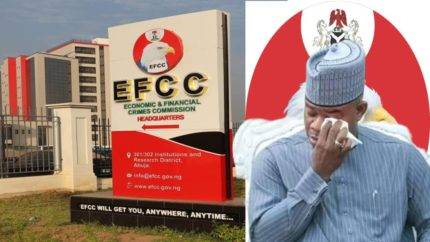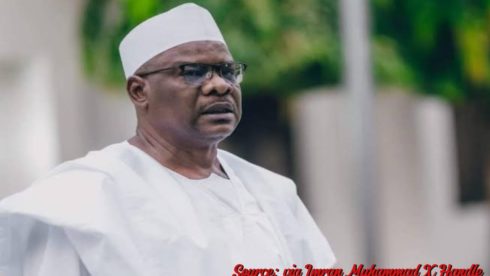EFCC Initiates Legal Proceedings Against Former Kogi State Governor Yahaya Bello for Alleged Corruption
The Economic and Financial Crimes Commission (EFCC) has initiated legal proceedings against former Kogi State Governor Yahaya Bello, accusing him of corruption following his eight-year tenure. Bello faces allegations of diverting a staggering sum exceeding N80 billion from Kogi State funds, marking a significant turn of events shortly after the conclusion of his term. This legal action underscores the EFCC’s commitment to combatting corruption at all levels of governance, signaling a robust stance against malfeasance in public office.
The EFCC’s decision to take legal action against Bello comes swiftly after he handed over leadership to his successor, Usman Ododo, on January 27. This strategic timing highlights the EFCC’s vigilance in addressing allegations of corruption without delay, demonstrating a proactive approach in holding public officials accountable for their stewardship of public resources. As the legal proceedings unfold, this development serves as a reminder of the imperative to uphold transparency and integrity in governance, setting a precedent for accountability and deterrence against financial misconduct in the Nigerian political landscape.
Amended Charges and Co-Defendants
In a strategic legal maneuver, the Economic and Financial Crimes Commission (EFCC) opted to amend existing charges rather than initiate a separate case against Yahaya Bello, former governor of Kogi State. This astute decision saw the inclusion of Bello as a co-defendant alongside his nephew and an associate, Ali Bello and Dauda Suleiman, respectively. Originally centered on accusations of misappropriation of state funds by Ali Bello and Dauda Suleiman, the case has now broadened to encompass Yahaya Bello’s alleged involvement in the corruption scandal. The amended charges shed light on the purported conversion of N80.2 billion belonging to the Kogi State Government for personal gain, with one implicated party still evading authorities.
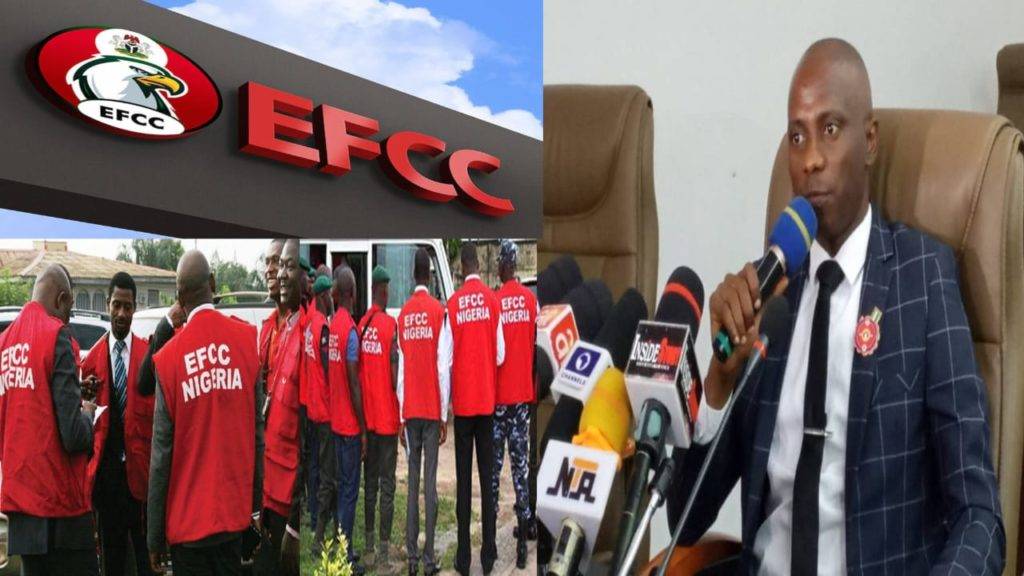
This tactical adjustment by the EFCC underscores their commitment to thorough investigation and prosecution of corruption cases. By consolidating charges and expanding the scope of the case to include Yahaya Bello, they aim to ensure comprehensive accountability and transparency in addressing alleged financial malfeasance. With meticulous attention to detail evident in the amended charges, the EFCC demonstrates its resolve to pursue justice rigorously, despite the complexities of prosecuting high-profile figures. This strategic maneuver not only strengthens the legal footing of the case but also sends a powerful message about the agency’s unwavering dedication to combating corruption at all levels of governance.
Kingsley Fanwo, Kogi State Commissioner for Information, Denounces EFCC’s Actions
In a strongly worded statement, Kingsley Fanwo, the Commissioner for Information in Kogi State, expressed vehement condemnation towards the actions of the Economic and Financial Crimes Commission (EFCC). Fanwo specifically targeted the inclusion of Governor Bello in the charges, pointing out glaring inconsistencies such as the alleged offense’s occurrence prior to Bello assuming office. He characterized the EFCC’s maneuver as “ridiculous,” implying that it not only lacks credibility but also undermines the ongoing anti-corruption initiatives championed by President [Insert President’s Name]. By highlighting these discrepancies, Fanwo positions himself as a staunch defender of Bello’s integrity while simultaneously advocating for a fair and just legal process.
Furthermore, Fanwo’s critique of the EFCC’s actions underscores the broader implications of the agency’s tactics. By publicly denouncing the charges against Governor Bello, Fanwo signals to both the local and national audience his unwavering support for the administration’s agenda. This strategic move not only aims to protect Bello’s reputation but also serves to bolster public trust in the government’s commitment to combat corruption. In the intricate web of political maneuvering, Fanwo’s condemnation serves as a potent tool for shaping public opinion and positioning Kogi State as a bastion of integrity amidst turbulent legal proceedings.
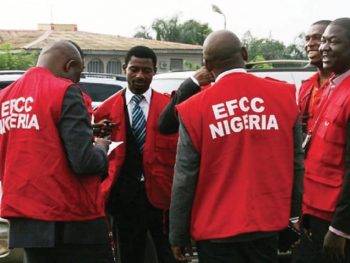
In a Scathing Critique: Fanwo’s Purgation of Emotion
In a scathing critique, Fanwo highlighted the fallacy inherent in characterizing Bello as “at large,” insinuating evasion of arrest, despite his voluntary surrender of leadership. This astute observation sheds light on the disconnect between perception and reality, as Bello’s peaceful transition contradicts the narrative of evasion. Moreover, it serves as a poignant indictment of the EFCC’s overzealous approach, suggesting a misalignment between their investigative tactics and the pursuit of justice. By employing vivid imagery, such as forgetting their “thinking hammer at home,” Fanwo aptly captures the recklessness and haste with which the EFCC is perceived to operate, adding depth to the ongoing discourse on corruption and accountability in Nigerian politics.
Fanwo’s criticism not only challenges the veracity of the charges against Bello but also underscores the broader societal implications of such allegations. By casting doubt on the EFCC’s methods, he invites scrutiny of institutional practices and accountability mechanisms within Nigeria’s legal framework. This resonates with a growing sentiment among the populace, calling for transparency and fairness in the handling of corruption cases. As the debate intensifies, Fanwo’s outspoken stance serves as a catalyst for broader conversations on governance, ethics, and the rule of law, ultimately contributing to the push for a more just and equitable society.
Legal Proceedings Against Bello: Impact on Kogi State’s Political Landscape
The ongoing legal proceedings against Bello, a prominent political figure in Kogi State, carry significant implications that extend beyond the individual case. This high-profile scenario has ignited debates regarding the integrity of public officials and the effectiveness of anti-corruption measures within the state. As allegations surface and legal battles unfold, questions arise about the accountability and transparency of leadership in Kogi State. The outcome of this case has the potential to shape public trust in governance structures and set precedents for future anti-corruption endeavors.
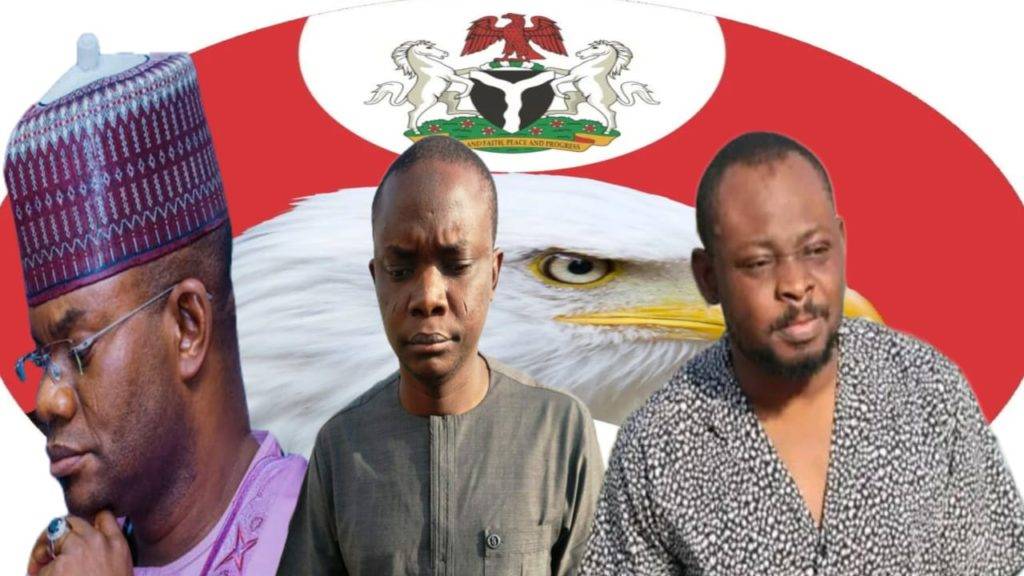
Central to the discourse surrounding Bello’s legal predicament is the role of the Economic and Financial Crimes Commission (EFCC) and its adherence to due process. As the agency tasked with investigating and prosecuting financial crimes, the EFCC’s actions are under scrutiny, with public perception playing a pivotal role in determining the credibility of their efforts. The handling of this case by the EFCC will not only impact its reputation but also shape public confidence in the institution’s ability to hold public officials accountable. Thus, the outcome of this high-stakes legal battle hinges not only on legal proceedings but also on the perception of fairness and justice within the broader community.
Continuing Legal Battle and Judicial Process
In the unfolding legal battle, scrutiny intensifies on the impartiality and openness of the judicial proceedings. With Bello’s inclusion as a co-defendant, the complexity of the case escalates, demanding meticulous scrutiny of evidence and legal contentions. This pivotal case not only underscores the intricacies of the legal system but also underscores the gravity of the matter at hand, testing Nigeria’s resolve in combating corruption and safeguarding the sanctity of the rule of law.
As stakeholders await the verdict, the case emerges as a crucible of Nigeria’s legal integrity, highlighting the nation’s stance on fair governance and accountability. The proceedings serve as a barometer for gauging the nation’s dedication to fostering a transparent and equitable judicial environment. The outcome will reverberate beyond the courtroom, resonating throughout the country, shaping perceptions of Nigeria’s commitment to justice and the rule of law both domestically and internationally.
Table of Contents
Discover more from OGM News NG
Subscribe to get the latest posts sent to your email.











